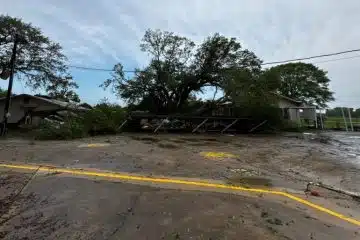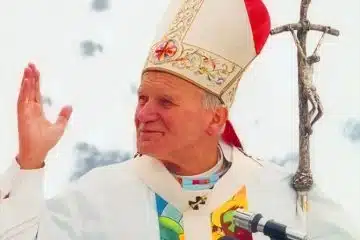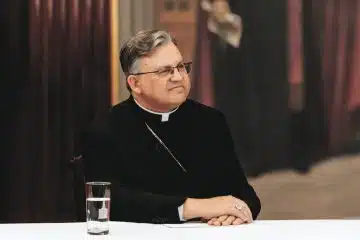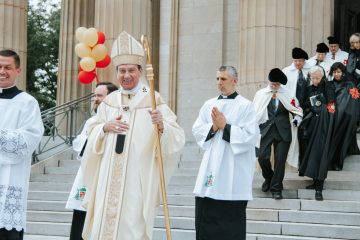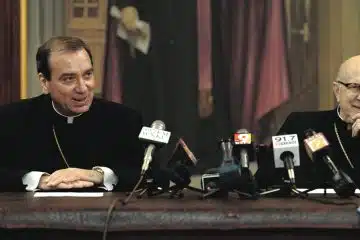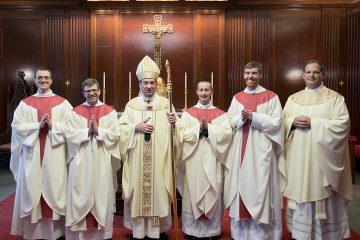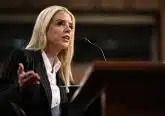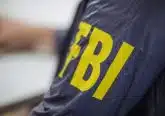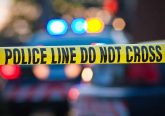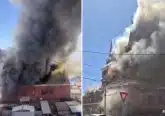Catholics in Sri Lanka fly black flags to protest perceived government failure to prosecute over Easter attack
by Jose Torres Jr.
Colombo, Sri Lanka, Aug 24, 2021 / 10:03 am
Catholics in Sri Lanka wore black and hoisted black flags on Saturday to show their indignation over what they see as the government’s failure to respond adequately the 2019 Easter Sunday attack on churches.
Malcolm Cardinal Ranjith of Colombo has been urging the government to name those behind the bombings that killed more than 260 people and injured over 500 others.
“The authorities are trying to cover up [the incident] by misusing their power but God doesn’t allow them to hide,” said the cardinal at an Aug. 21 prayer service in Colombo.
The coordinated suicide bombings on three churches, four hotels, and one housing complex on Easter Sunday 2019 took place while Masses and religious services were held.
“We have been waiting for two years for a proper investigation into the bombings, but nothing has happened,” Cyril Gamini Fernando was quoted saying in a report by LiCAS News.
Families of those who perished during the attack hoisted black flags at their homes, churches, and public places as a response to Cardinal Ranjith’s call for a demonstration.
Prayer services were also held but with limited attendance due to restrictions because of the pandemic.
Cardinal Ranjith had earlier called on the people in Sri Lanka to join the demonstrations.
“Raise a black flag on August 21 in front of your homes, institutions and market places as a strong symbol of the silent protest,” said the Catholic prelate during a media briefing Aug. 13.
He said he was not satisfied with the legal action being taken by the authorities against those suspected to be responsible for the Easter bombings.
The cardinal said that he already received a response from President Gotabaya Rajapaksa to an earlier letter asking for the “truth” behind the bombings.
He said the president’s response “did not mention any action the government would take and a proper investigation into the serious issues we raised about the attacks.”
In a letter in July, the country’s Catholic leaders criticized the “lethargic pace” of a government inquiry into the terrorist attacks on churches, and questioned why recommendations brought by an official inquiry into the attacks have not yet been acted upon.
The July 12 letter was signed by Cardinal Ranjith, several other bishops, and nearly 30 priests.
“We can never believe that the truth will come out through this ongoing process,” said Cardinal Ranjith during the media briefing, adding that if a committee is to be appointed to implement the recommendations of the government, “there should be a committee involving all political parties.”
“It is clear from this procedure that after such a long time the government has no interest in finding out the truth about the attack and they are going to cover it up and wash their hands,” read a statement from the Archdiocese of Colombo.
“The government took political advantage of the Easter Sunday attack and promised to reveal within a month those who carried out the attack,” read the statement.
“Our country is still not secure and attacks like the one that took place on Easter Sunday are still possible at any time. We can’t allow this culture of killing to continue. The country must learn a lesson from the sacrifices of the innocents killed on Easter Sunday,” it added.
The statement said “the real killers must be identified and the country must know the truth.”
“Politicians do not want to end this culture of killing. Extremism is beneficial to them and they continue their selfish journey through the tears of human suffering,” it added.
Cardinal Ranjith has been pushing for Sri Lankan authorities to be held responsible for failing to prevent the bombings.
In October 2020, five of seven suspects arrested in connection with the attacks were released by the government because of lack of evidence.
The cardinal, however, said security officials had confirmed to him that there was sufficient evidence against many of the suspects who had been arrested.



